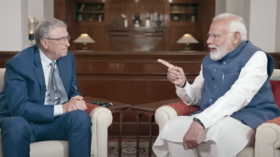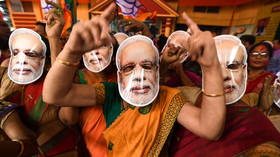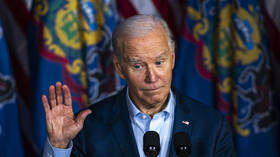WhatsApp threatens to exit India

Messaging service WhatsApp, owned by Mark Zuckerberg’s Meta, has challenged Indian laws that would compel it to break user encryption in special cases.
Petitioning at the Delhi High Court on Thursday, the company demanded that a local IT law be declared “unconstitutional,” and that there should be no criminal liability for non-compliance. Lawyers representing WhatsApp claimed that the platform would quit India if it were “told to break encryption,” local media reported.
The High Court was hearing petitions by WhatsApp and its parent company Facebook (now Meta), which are challenging IT rules enacted in 2021 for social media intermediaries. The law requires the messaging app to trace chats and make provisions to identify the “first originator of information” if ordered to do so by a court or a competent authority.
“We will have to keep a complete chain, and we don’t know which messages will be asked to be decrypted,” WhatsApp lawyer Tejas Karia was quoted as saying by India Today. Millions of messages will have to be stored for years to comply with the rule, he added, arguing that the requirements are unique anywhere in the world.
The court argued that “privacy rights” are not absolute and that “balance has to be done.” Several pleas challenging the IT law are pending before high courts across India.
Information could be sought from the messaging app for offenses related to national security, public order, or those related to rape, sexually explicit material, or child sexual abuse material – each punishable with a jail term of five years, according to Indian media reports.
WhatsApp has 535.8 million users in India, the largest number of any country, according to data for 2024 from tracking website Statista. The number is rising at a rate of 16.6% every year. The Economic Times estimated the platform’s revenues in the county at close to $1 billion.
“India (is) a country that’s at the forefront... You’re leading the world in terms of how people and businesses have embraced messaging,” Zuckerberg said in a virtual address at Meta’s annual event in Mumbai last year, according to the media outlet.
WhatsApp’s legal battle is playing out against the backdrop of harsher laws imposed by New Delhi against AI-generated deepfakes and other social media threats. Earlier this year, India vowed to hold big tech accountable for misleading content on their platforms, warning of potential punishments for any failure to remove such content in a timely manner.
Another controversy erupted in February when Google’s new ‘Gemini’ chatbot appeared to link Indian Prime Minister Narendra Modi with ‘fascism’. New Delhi later issued an advisory requiring “significant” tech firms to obtain government permission before launching new models.
The directive, however, was rolled back after criticism from India and abroad. Meanwhile, AI has also been accused of playing an adversarial role in the ongoing Indian general election, with morphed videos of Bollywood film stars circulated on social media to mislead voters.
Where India Meets Russia – We are now on WhatsApp! Follow and share RT India in English and in Hindi














